
14 minute read
Map showing where to vote and/or turn in your ballot
2020 ELECTION GUIDE | OPINIONS Vote blue no matter who part 2: Save the nation
BY KAYLEIGH COOK
@mountainsaguaro
In March, I made the case to “Vote blue no matter who,” as the democratic candidate race narrowed to Bernie Sanders and Joe Biden. I argued that the “Bernie or bust” movement was problematic, as well as Biden supporters saying they wouldn’t vote for Bernie (they just didn’t have as catchy of a name). I would now like to make a new case to you, one that you may have heard before, but it is so important that I had to write a whole column on it: vote blue no matter what.
And yes, I mean no matter what. Many lay conservatives like to defend President Donald Trump and his actions by saying “well, he’s not a politician!” or “he doesn’t take any bullshit” — to which I say, he spouts so much bullshit he can’t keep up with himself. When your candidate is so problematic that other politicians in their party will stray from the line to vote him out, you know something is desperately wrong.
I would like to clarify that I think voting along party lines for the sake of the party is not helpful to the democratic process, but that’s what it has come to in America.
Some conservatives claim that “leftists” don’t like Trump because he is loudmouthed, unapologetic, proud of America and rich. I can verify that this claim is not true. I don’t like Trump because he is racist, homophobic, transphobic, sexist, childish and all around stupid. I don’t like Trump because I have the right to critique my country to help it evolve and he wants me to either agree with everything he says or be subjected to Martial law.
I don’t like Trump because he reversed healthcare protections put forth to protect
Election 2020: where you can vote on and near campus
Emergency voting is for individuals who have an emergency on Election Day that would physically prevent them from voting, or for voters who have health concerns. ose who wish to emergency vote must sign a form stating that they have an emergency, but they do not need to specify.
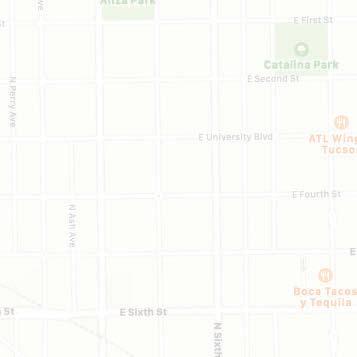
e closest emergency voting location to campus is the Recorder’s Main O ce. e dates for emergency voting are Oct. 31 from 9 a.m. to 3 p.m. and Nov. 2 from 8 a.m. to 5 p.m.
Another site close to campus is Woods Library at 3455 N. 1st Ave. It will be open Oct. 31 from 9 a.m. to 3 p.m. and Nov. 2 from 8 a.m. to 5 p.m.
e two voting locations within a mile of campus are at First United
Methodist Church,915 E 4th St., in
the Arizona Room, or the Donna L.
Higgins Neighborhood Center, 2160 N 6th Ave., in the multipurpose room.
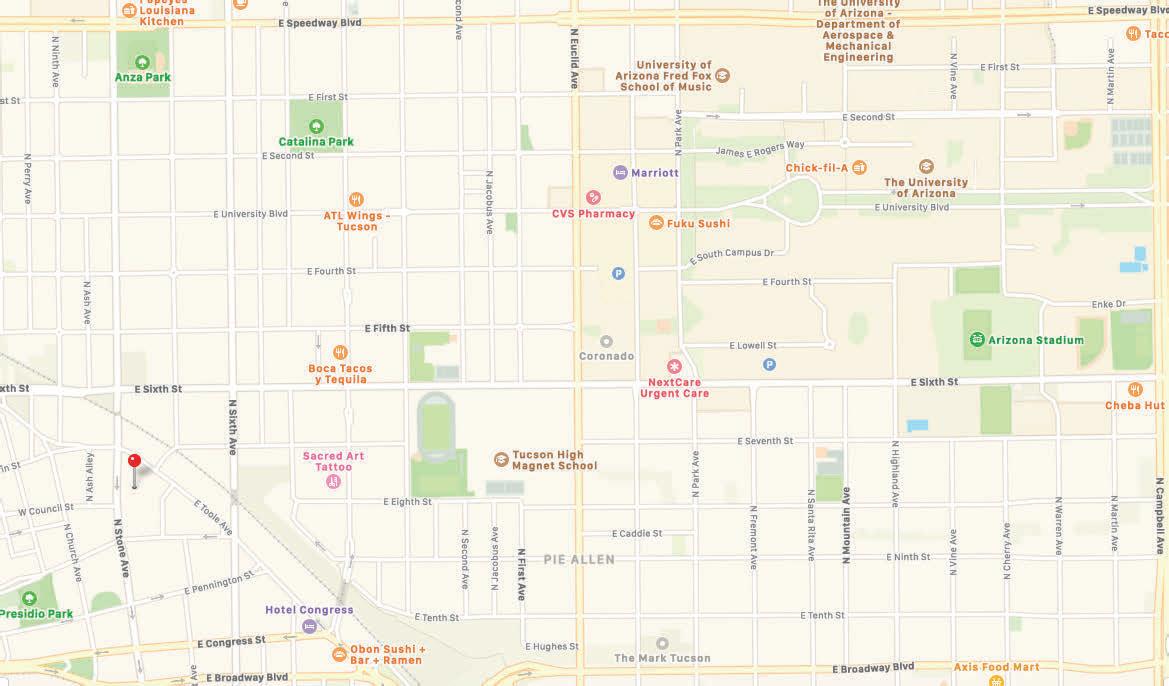


To check your designated polling station based on your address, visit Pima County’s poll locator. On campus, the Santa Rita room in the Student Union Memorial Center will be open Oct. 26 to Oct. 30 from 9 a.m. to 5 p.m. for early ballot drop-o.
e closest location o-campus that will accept early ballots is the Recorder’s Main O ce at 240 N. Stone Ave. Curbside ballot drop-o will be available from Oct. 19 to Nov. 2 from 8 a.m. to 5 p.m.,
Monday to Friday.
Where to turn in early ballots or vote early
Voting locations on or near campus Emergency voting sites Once you’ve registered to vote, the next step is nding out when and where to vote. Pima County is providing multiple locations and methods for voting, and the Daily Wildcat is breaking it all down for you.
transgender Americans. I don’t like Trump because he completely disregards the environment for his own selfish gains — environment for his own selfish gains — including plowing down sacred land including plowing down sacred land to Native American people for to Native American people for his pointless (and expensive) his pointless (and expensive) border wall. I don’t like border wall. I don’t like Trump because he said Trump because he said he could “grab women by he could “grab women by the pussy” because he’s the pussy” because he’s famous — not to mention famous — not to mention his 26 sexual misconduct his 26 sexual misconduct allegations from women allegations from women that have been conveniently that have been conveniently swept under the rug.
I believe that former Vice I believe that former Vice President Joe Biden holds a brighter, President Joe Biden holds a brighter, normal future for America. I say “normal” normal future for America. I say “normal” because yes, believe it or not, I hate waking up every morning dreading what awful things our president has said while I was asleep. Not only is Biden not insane, but he actually has set forth plans for his first
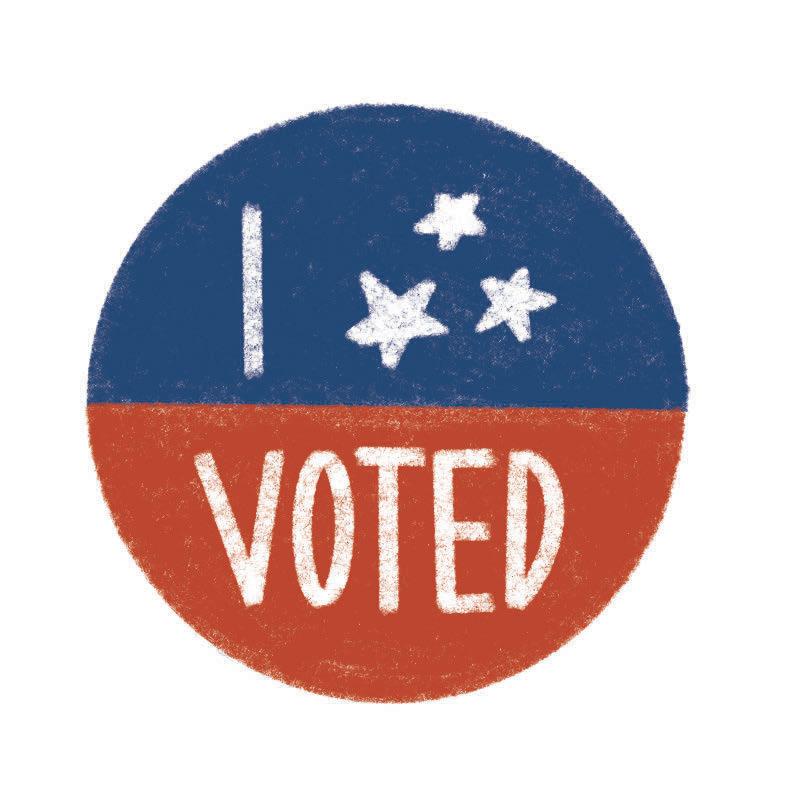
100 days in office as well as policy outlines, which is something that Trump has failed to do repeatedly. do repeatedly. When Trump was first elected, When Trump was first elected, I was 16 and I, too, fell victim I was 16 and I, too, fell victim to the fear mongering sent to the fear mongering sent to disturb conservative to disturb conservative voters; I was happy and voters; I was happy and thankful he was elected. thankful he was elected. But when I got to school, I But when I got to school, I saw so many people who saw so many people who I loved and respected I loved and respected in tears because of his in tears because of his election, and that set off election, and that set off red flags for me. red flags for me. People should not be afraid People should not be afraid to be who they are because of the to be who they are because of the president. That is not a democracy and president. That is not a democracy and that is not a country that should be a “leader of the free world.” We should be able to disagree with the president on policy points, yes. But when the president represents a culture of hatred, who continuously divides the nation, who picks fights for the sake of being in a fight, that is not a person who you want representing your country.
When I watched Biden speak to the country on the night of the first debate and Trump was screaming nonsense from the other side of the stage, it felt different. For the first time in four years, I felt like the United States once again had an opportunity to improve, to right past wrongs and move forward to make positive changes. Biden wants to govern for the whole country, not trick a few folks into thinking he’s doing well while working for the rich. Don’t get me wrong, I know Biden has supported bad policies in the past, but he has admitted he was wrong, which is more than Trump could ever do.
So, I once again plead with you — get off your high-horse, do what’s best for the country and vote blue this election!
FROM LEFT TO RIGHT: The flags of U.S. territories including the U.S. Virgin Islands, Guam, American Samoa, and the Northern Mariana Islands.
People living in territories under the jurisdiction of
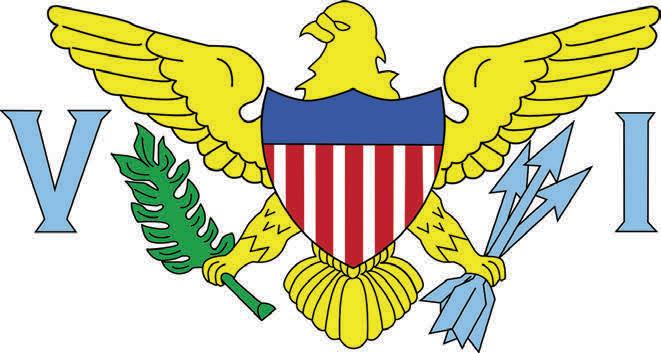

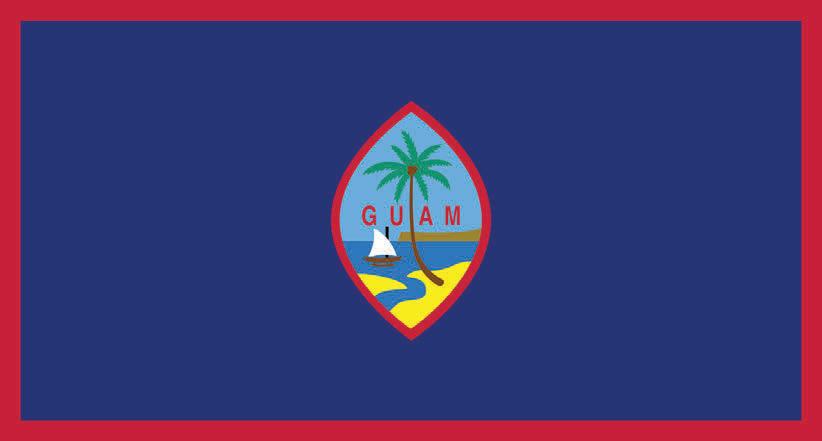
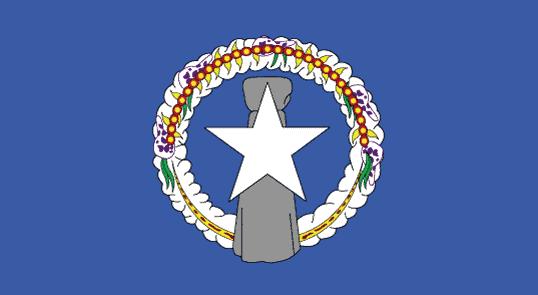
the U.S. deserve constitutional rights
BY LAUREN BORELLI
@DailyWildcat
When it comes to U.S. territories, you can find a mess of restricted rights and half-assed citizenship for those living within them. In the 15 territories, with 4 million inhabitants, the U.S. has marginalized the inhabitants and caused the mass disenfranchisement of their populations for decades. The territories include Puerto Rico, Guam, the U.S. Virgin Islands, American Samoa and the Northern Mariana Islands, as well as a few uninhabited islands. When it comes to the rights and citizenship in the territories, things get a bit complicated.
Puerto Rico’s official classification is “unincorporated territory” of the United States. This means that only select parts of the U.S. Constitution apply to residents, although most federal laws apply just the same. Puerto Rico is also a commonwealth of the United States and has a close relationship with the federal government, with inhabitants receiving U.S. citizenship at birth. These rights extend to the ability to serve in the military and government services, but they lack the right to vote and have no electoral representation; they are not even permitted the right to elect a representative to send to Congress.
Guam, the U.S. Virgin Islands and the Northern Mariana Islands, similarly to Puerto Rico, are unincorporated territories and only select parts of the Constitution apply to residents. Residents are also considered citizens and are allowed to serve in the military. Guam has extremely high rates of military service, and one in eight of those living in Guam have served. These territories
PUERTO RICO IS A Caribbean island and unincorporated U.S. territory. Its population is about 3. 2 million, yet they have almost no representation in the U.S. government.
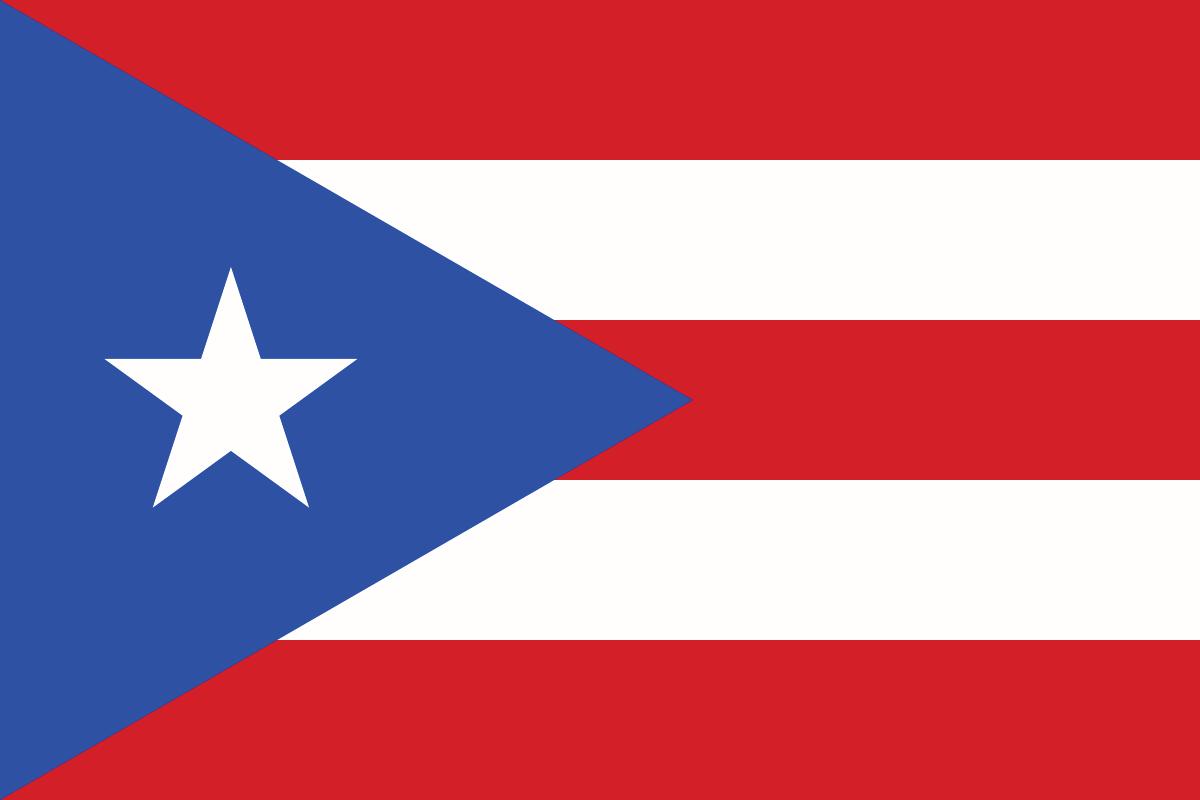
are allowed to elect and send a delegate to the House of Representatives, as well as to attend Democratic and Republican conventions. However, this delegate possesses little to no voting abilities and inhabitants of these territories do not have the right to vote.
American Samoa is one of the most marginalized territories as they do not possess many of the already limited rights of the other territories. In addition to being an unincorporated territory like all the others, they are an “unorganized” territory as well. This means they have no congressionally implemented system of government and do not receive full citizenship upon birth. Inhabitants of American Samoa are regarded as “Nationals,” meaning that to acquire citizenship they will first need to follow a similar process to that of someone trying to immigrate to the United States. The process will include tests in English, U.S. history and civics, as well as upwards of $700 in fees.
If the obstacles made to restrict the rights of American Samoans don’t sound eerily similar to literacy tests and poll taxes, then please, continue on. Arguably one of the most patriotic populations, it is evident that one of the few American rights bestowed upon American Samoa is enthusiastically used. American Samoa has historically had extremely high military participation rates, even achieving the number one recruitment office in 2014. On top of this, the small island is home to six military bases. On an island where people are not even officially considered American citizens, we see the highest military participation rates, as well as the largest donation of land to military bases proportionately.
In looking at the history of this great saga of oppression we find ourselves with the same Supreme Court that exemplified racism in America. In the early 20th century, shortly after acquiring American Samoa in 1900, the Supreme Court ruled that U.S. territories did not have the right to vote. This would be the same Supreme Court that made the famous ruling in the Plessy v. Ferguson case, which coined the term “separate but equal”.
Now let me share another story from history with you: the year is 1773. The British Parliament creates a tax on tea in the North American colonies, commonly referred to as the Tea Act. In protest of the taxation by the government, without adequate colonial representation in Parliament, a group of Massachusetts colonists throw a shipment of tea into Boston Harbor. Ten years later, on the same principles from that night, an independent nation stood victorious over its oppressors and began to work on what would be a government meant to represent every single person living under its jurisdiction.
Colonists, much like inhabitants of territories, were demanding fair and equal treatment. I urge you to look closely at something that many of us take for granted and know that fellow Americans are not receiving the level of rights they should be. As you prepare to cast your ballot, remember what our country was founded on and strove for the democracy we are promised. Change can only happen when we all stand up against this injustice and do not accept inequality as good enough.
— Lauren is a political science major. She is from Baltimore
2020 ELECTION GUIDE | INTERNATIONAL IMPACTS
From visas to voting, international students express their thoughts on the upcoming election
BY KATIE BEAUFORD @beauuford
The University of Arizona hosts more than 4,000 international students, who are part of the over 1 million international students who leave their home countries to live, study and work across the United States. While studying in a new country offers unique opportunities to engage with different cultures, industries and education, it also comes with a plethora of concerns, particularly surrounding the United States’ controversial and ever-changing immigration policies.
According to Rodolpho Souza Amado de Carvalho, a biochemistry PhD student from Brazil, the upcoming elections have been cause for concern for international students.
“They’re worried about the elections,” Carvalho said. “Of course they don’t want Trump to get reelected because it’s going to give that sensation of insecurity, [where] they don’t know what’s going to happen. They don’t know if they’re going to be able to easily go to their countries to come back.”
Carvalho also expressed concern that the Optional Practical Training visa program might be changed. The OPT program allows international students to receive up to twelve months of employment authorization during or after their graduation from an American university.
In May of this year, the Trump administration announced intentions to limit and cut the OPT program in order to provide more jobs for American citizens.
“[The OPT] is a very good thing because you can explore the private sector, you can include some experience in the real world,” Carvalho said. “We have this right as international students, if you’re graduating from [the US]. And this is one of the things that Trump is planning or already trying to take.”
The OPT program is not the only one that the Trump Administration has targeted for cuts and overhauls. Since 2017, the White House has been vocal about changing the H1-B visa process as well. An H1-B visa is a nonimmigrant
PRESIDENT DONALD TRUMP SPEAKING at the 2013 Conservative Political Action Conference (CPAC) in National Harbor, Maryland. (GAGE SKIDMORE/(CC BY-SA 2.0)
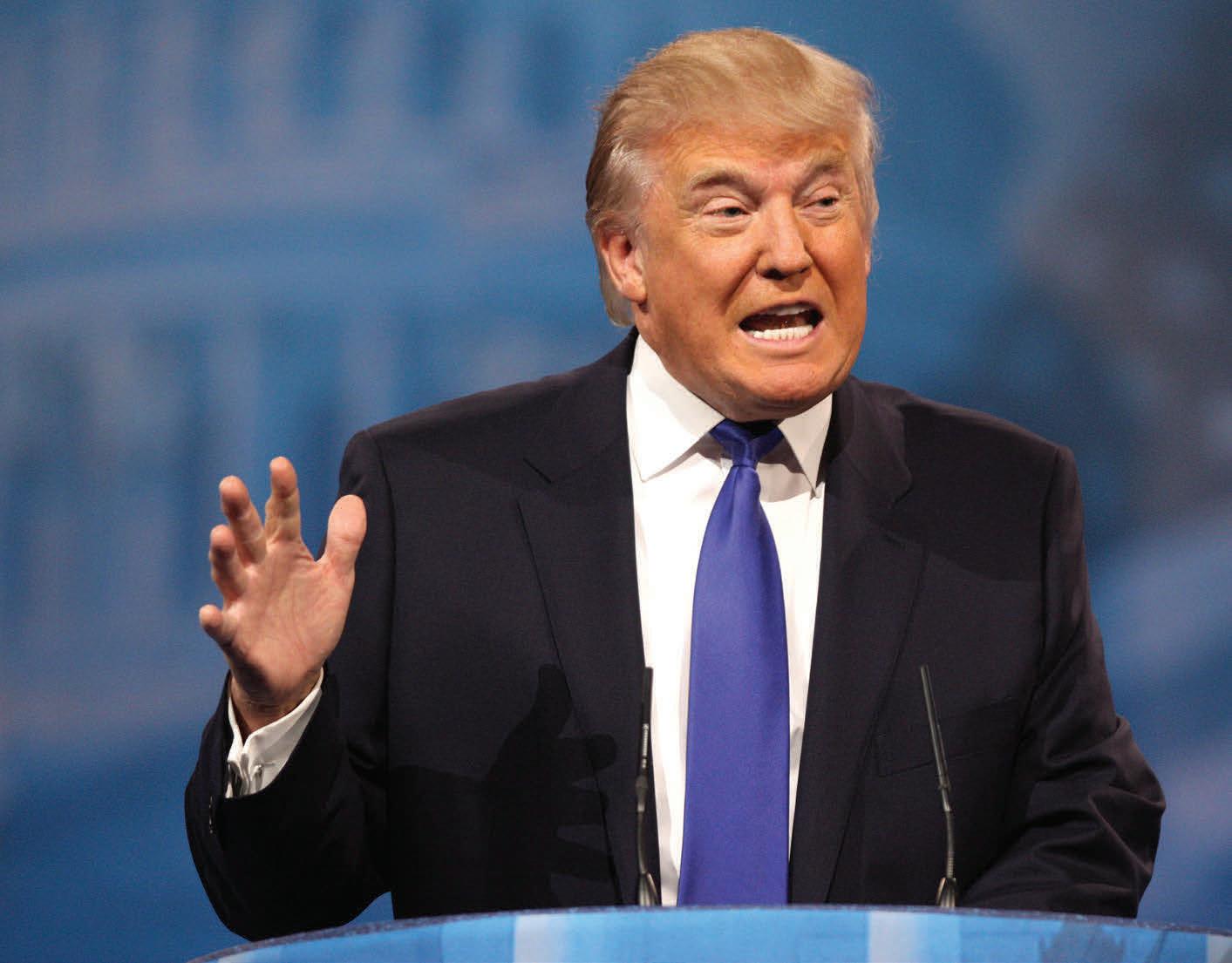
work visa for foreign workers with at least a Bachelor’s degree in a specialized field such as mathematics, IT, supply chain management, finance or medicine.
Chaitanya Ranade is an undergraduate from India studying pre-business. He expressed concerns about the H1-B policy.
“[Trump] is saying that he is … prioritizing American citizens and giving them jobs, but what I see is impacting the H1 visa policy, I will need to work in the United States,” Ranade said.
At the start of October, the Trump Administration announced that they would be overhauling the H1-B visa policy and process. Planned changes include requiring more specific, specialized degrees for foreign workers and to cut down the length of some H1-B visas down from three years to one.
Ken Cuccinelli, the deputy secretary for the Department of Homeland Security, predicted that these changes will result in at least one-third of H1-B visa applications being rejected.
These changes, and the attitude of the Trump Administration regarding immigrant and foreign workers, has caused concern for Ranade.
“What scares me is that, after coming here, after my parents invested in me, and getting a degree from the college of management … if I get a job offer from a good company and my H1-B is not approved … they will send me back to India,” Ranade said.
For Alsa Munaqiah, an Indonesian undergraduate studying finance and management information, the concern over H1-B visa changes motivated her to take on a minor in addition to her two majors.
“I added a minor with a global business because I was like, ‘if I can’t get a job, at least I can start my career somewhere else,’” Munaqiah said. “I’ll have a background in international business, which makes me more suitable to work anywhere else. So that’s my game plan for now.”
Carvalho, Munaqiah and Ranade, who all described themselves as being politically active in their home countries, feel that it’s incredibly important that Americans vote. “[Everyone] should select a candidate who they think can do better,” Ranade said.
For Munaqiah, part of what makes America a place worth living and studying in is its immigrant population and legacy. “America is an immigrant country. That’s what makes America great. And that’s one of the reasons why I came to the United States, because it’s so diverse.”
Carvalho hopes that Americans can consider the positive feelings that international students feel about the U.S.
“I love America. That’s why I decided to come here for undergrad. That’s why I decided to come back for my PhD,” Carvalho said. “I think that that’s something that Americans should see. That an international student probably loves this country just as much as they do.”







